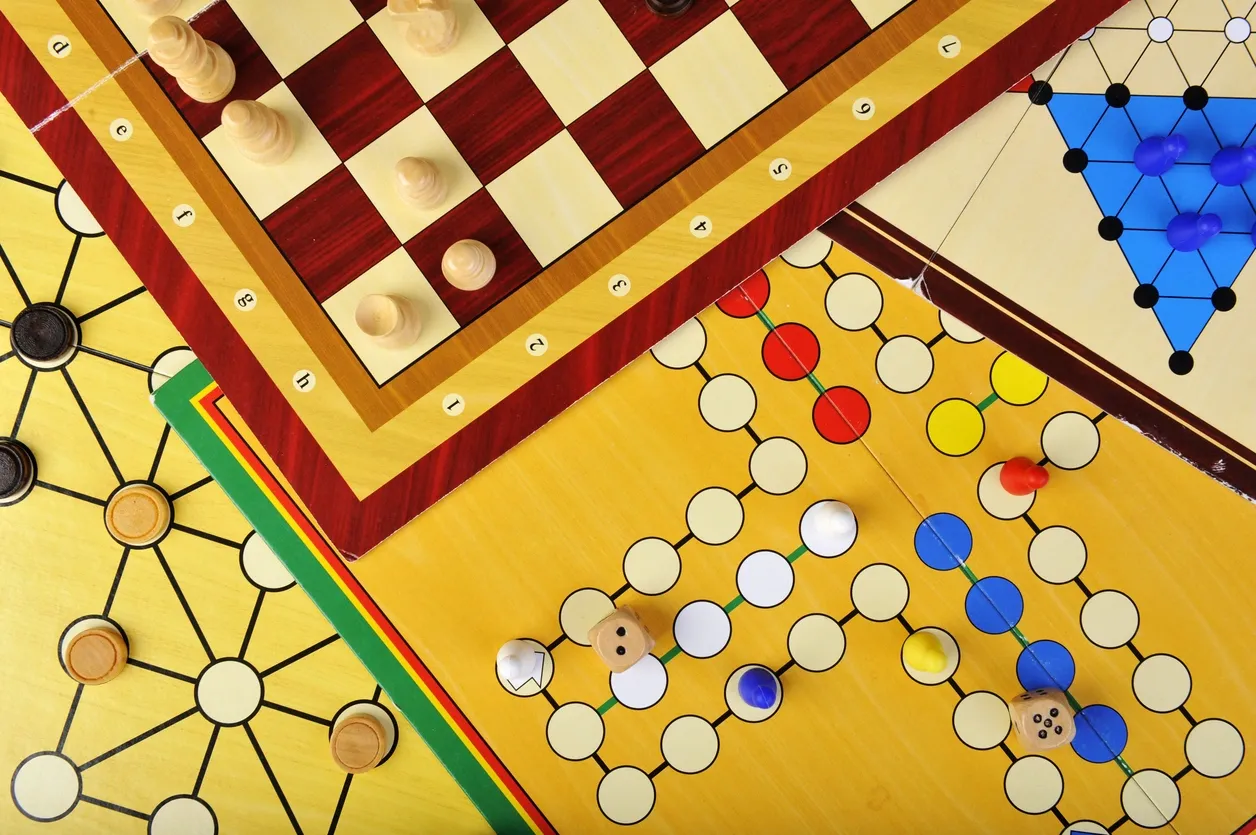Need to know
- Why board games are good for children
Board games can provide hours of entertainment for the whole family, but sometimes they can be at the centre of huge meltdowns. This can result in parents finding it easier to leave them in the cupboard to begin with and avoid the conflict.
However, research has shown that playing board games can have benefits beyond being just a source of entertainment. Whether you are rolling dice, asking and answering questions, or strategising with a set of cards, you are also learning and practising some very important life skills in a positive environment.
Why it’s important
Kids learn much better through play and board games allow them to safely practice and build on skills that they need to use with their friends, in a classroom, during organised activities and in family life.
There is mounting literature that points to board games as a way for children to:
Develop social skills – making and keeping friendships are at the core of a child’s wellbeing and are crucial for their social, emotional and cognitive development. The skill of taking turns with toys and equipment, but also within conversations, is part of building positive relationships with others. A multi player board game gives kids the opportunity to practice being patient, waiting their turn and allowing someone else to have theirs.
Build resilience and self regulation – as a child starts school they will face many challenges that will test their emotional resilience. They will need to be able to cope with disappointment, receiving criticism, and making mistakes. As parents we always try to teach our kids to see the positive side of situations that don’t go their way, but we’re not always around to do this. Family board games allow parents to create a more controlled and supportive environment to help their kids build resilience and practice self regulation while dealing with winning and losing.
Foster flexible thinking – board games that require negotiation and cooperation increase a child’s ability to adjust their thinking. If your child has difficulty with rigidity, a board game can encourage them to explore alternative ways of solving problems from a perspective other than their own, again in a low stress environment.
Strengthen fine and gross motor skills – there are many types of board games, some require the movement of pieces, drawing or building, which are all great ways to strengthen fine motor skills, and others include physical challenges that use gross motor skills. For children who need to strengthen their pincer grip, improve their balance, etc, board games are a fun way to practice these skills.
Improve short term and working memory – learning and applying rules and using strategy require your child to sustain attention and use both their short term and working memory to play the games. This is particularly important for children who have executive dysfunction as part of a neurodevelopmental difference.
Improve maths skills – studies show that playing number based board games, where players move a game piece along ascending numbers, helps kids gain a sense of the number line and quantity, which is predictive of long term mathematical achievement.
Tips & strategies
Board games are also a great activity for the whole family as they improve interaction between family members by building stronger ties, communication, and emotional and stress management skills.
Start simple – begin by choosing simple games with only a few rules to remember that you can also easily adapt to your child’s ability. Choosing something that is beyond your child’s cognitive ability will only end with frustration and refusal.
Match the skills you want to build to the game – firstly identify the skills you want to help your child build on and then select the games that complement those skills. For example, if your child has difficulty using their fingers and wrists to make deliberate and careful movements, pick games that involve moving pieces. For social skills, select games that require negotiation or collaboration between players.
Choose games to match your child’s interest – if your child is passionate about a particular interest area there are many themed games that will motivate them to play.
Start with cooperative rather than competitive games – if your child has difficulty dealing with losing, you might want to start with games that focus on cooperation between players. They will still get many of the benefits from playing but without the stress of individual competition. When you think they are ready, introduce a competitive game that they can play in teams and down the track you can include games your child can play against other family members. Getting siblings to team up against the parents is always a fun way to foster stronger relationships between siblings while teaching them the value of cooperation, which will hopefully find its way into other facets of family life.
Model sportsmanship – board games are a great opportunity to name and talk through the emotions that come with being the winner and with losing. Congratulating the person who wins shows your child that celebrating other people’s victories is possible. And being a good winner also means showing appreciation for the other player’s efforts.
Play regularly – the best way to develop all the skills listed in this article is to practice them regularly. Playing lots of board games gives you a perfect opportunity to teach your child to cope with emotional challenges that come with disappointments, mistakes and criticism.
References
- https://www.ncbi.nlm.nih.gov/pmc/articles/PMC8248432/
- https://www.yourtherapysource.com/blog1/2021/09/03/benefits-of-board-games/
- https://www.ncbi.nlm.nih.gov/pmc/articles/PMC4513287/
- https://www.ncbi.nlm.nih.gov/pmc/articles/PMC8384560/
- https://bpsmedicine.biomedcentral.com/articles/10.1186/s13030-019-0164-1
- https://www.frontiersin.org/articles/10.3389/fpsyg.2019.02024/full
- http://www.speechlanguage-resources.com/board-game-rules.html
- https://www.sciencedirect.com/science/article/pii/S2211949321000144


